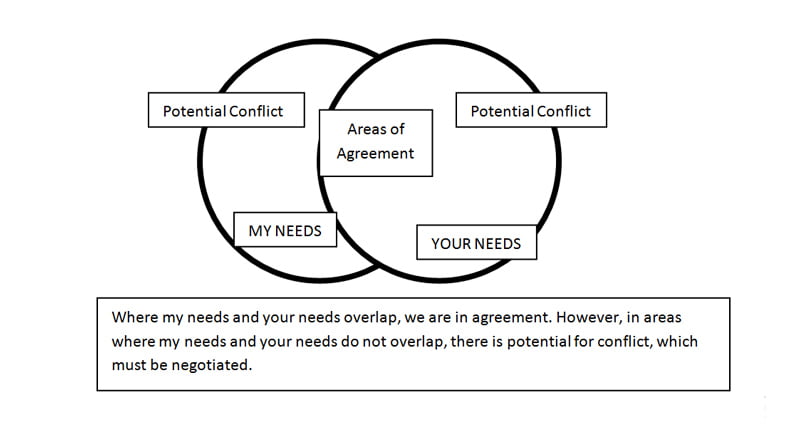In the intricate tapestry of human relationships, effective communication and conflict resolution are the threads that hold everything together. Whether it’s in our personal lives, at work, or within our social circles, building and maintaining strong relationships hinges on our ability to communicate openly and resolve conflicts harmoniously. In this blog post, we will delve into the vital role that communication and conflict resolution play in nurturing robust, meaningful connections.
The Power of Communication

Active Listening
Communication is not just about speaking but also about active listening. To foster strong relationships, one must listen with intent. This means giving your full attention to the speaker, maintaining eye contact, and avoiding interruptions. Active listening allows you to understand others’ perspectives, making them feel valued and appreciated.
Effective Expression
Conveying your thoughts, feelings, and ideas effectively is equally important. Clearly articulating your thoughts minimizes misunderstandings and misinterpretations. It’s important to be honest, respectful, and tactful in your communication, ensuring that your words resonate with empathy.
Non-Verbal Communication
Communication extends beyond words. Body language and facial gestures, for example, can often convey more than words. Being aware of your non-verbal communication and paying attention to the non-verbal cues of others is key to understanding unspoken feelings and emotions.
Embrace Conflict Resolution
Conflict is a natural part of any relationship. Rather than avoiding it, embrace it as an opportunity for growth and understanding. A conflict-free relationship often means unaddressed issues, leading to resentment and distance.
Communicate During Conflict Resolution
During conflict resolution, it’s crucial to maintain open and respectful communication. Avoid blaming and instead focus on sharing your feelings and worries. Encourage the other party to do the same. A calm and composed dialogue can lead to resolution.
Seek Compromise
Compromise is the bridge to conflict resolution. It’s vital to find a middle ground and solutions that satisfy both parties. Keep in mind that compromise does not mean giving up your values or principles but finding a mutually agreeable solution.
Learn from Conflicts
Each conflict provides an opportunity for personal and relationship growth. Reflect on what caused the conflict and what can be done differently in the future. Learning from past conflicts can prevent similar issues from arising.
Practical Tips for Building Strong Relationships
Spend Quality Time Together
Quality time strengthens relationships. Dedicate time to connect and share experiences with your loved ones. Whether it’s a romantic date night, a family outing, or a simple conversation, these moments build bonds.
Show Empathy
Empathy is the cornerstone of understanding. Put yourself in the other person’s shoes to grasp their feelings and perspectives better.
Practice Patience
Patience is a virtue in any relationship. Sometimes, people may need time to process their thoughts and emotions. Give them the space to do so without rushing them into conversations or decisions.
Seek Professional Help if Necessary
If communication and conflict resolution become a recurring challenge in your relationship, seeking professional help from a counselor or therapist can be a wise choice. They can provide guidance and strategies to address deeper issues.
Conclusion
Building strong relationships is an ongoing process that requires commitment, effort, and a keen focus on effective communication and conflict resolution. By actively engaging in these practices, we can nurture bonds that are not only resilient but also fulfilling and enriching. Remember, strong relationships are built on the foundation of healthy communication and the ability to navigate conflicts with grace and understanding.
Must Read: Adapting Back Office Services To Your Needs
FAQs
Why is communication important in building strong relationships?
Communication is essential because it helps individuals understand each other, express their feelings and thoughts, and build a foundation of trust and connection.
How can I become a better listener in my relationships?
To become a better listener, practice active listening, maintain eye contact, avoid interruptions, and genuinely focus on the speaker. Show empathy and ask clarifying questions when needed.
What are some common barriers to effective communication in relationships?
Common barriers include lack of active listening, misinterpretation of non-verbal cues, and poor expression of thoughts and feelings.
How can I approach conflicts in a relationship in a healthy way?
Approach conflicts by maintaining open and respectful communication. Avoid blaming and instead share your feelings and worries. Seek compromise and learn from conflicts to grow.
Is it okay to have conflicts in a relationship?
Yes, conflicts are a natural part of any relationship. They provide opportunities for growth and understanding. Avoiding conflicts may lead to unaddressed issues and distance.
